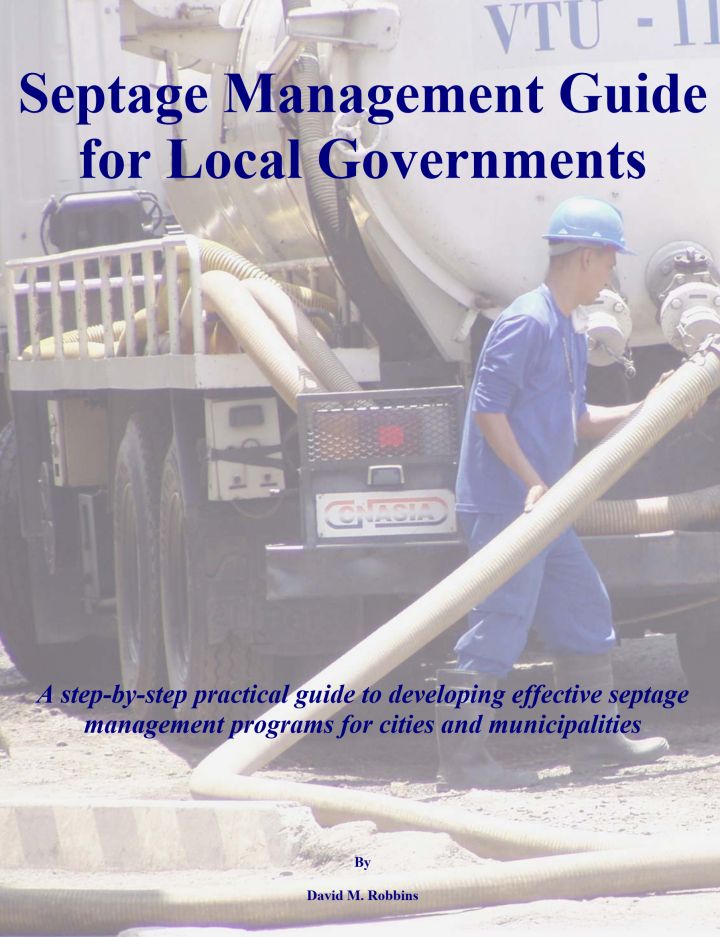Septage Management Guide for Local Governments - A step-by-step practical guide to developing effective septage management programs for cities and municipalities
David M. Robbins (2007)

Published in: 2007
Pages: 43
Publisher:
David M. Robbins
Author:
David M. Robbins
Uploaded by:
SuSanA secretariat
Partner profile:
Deutsche Gesellschaft für Internationale Zusammenarbeit (GIZ) GmbH
1132 Views
22 Downloads
The direct relationship between diseases such as cholera, hepatitis and dysentery and the unrestricted discharges of residential sewage is well documented. The septic tank is a simple device and when designed, installed, and operated properly, can serve as the first step in the sewage treatment process, which transforms human waste into a manageable effluent. Effluent can be further treated, reused or disposed of, thus breaking a cycle of disease that is responsible for huge economic losses, countless lost lives, and immeasurable human suffering. In order to be effective, enforcement at the local level can ensure the adherence of best practices to regulate septic tanks and on-site wastewater management.
Septage is the contents of septic tanks. It includes the liquids, solids (sludge), as well as the fats, oils and grease (scum) that accumulate in septic tanks over time. Comprehensive programs that regulate periodic septic tank cleaning, as well as septage transport, treatment, reuse, and disposal are becoming important for cities throughout South and South East Asia. These programs serve to improve sanitation while reducing the prevalence of waterborne diseases. In order to be effective, such programs must consider existing septic tank practices in regards to usage, design, and construction, as well as the transportation and treatment capacity of the local governments or concessionaires tasked with implementing these programs.
One approach to septage management is for local health authorities to promulgate rules, ordinances or laws that dictate septic tank practices. These may include monitoring requirements or specifying pumping and de-sludging frequencies, as well as implementing best practices through all stages of septage handling. Such programs, when coupled with full cost recovery mechanisms based on user fees, can be especially effective.
Bibliographic information
David M. Robbins (2007). Septage Management Guide for Local Governments - A step-by-step practical guide to developing effective septage management programs for cities and municipalities. David M. Robbins
Filter tags
East Asia & Pacific English Guidelines and manuals Import to Sanitation Workers Platform Urban (entire city)















